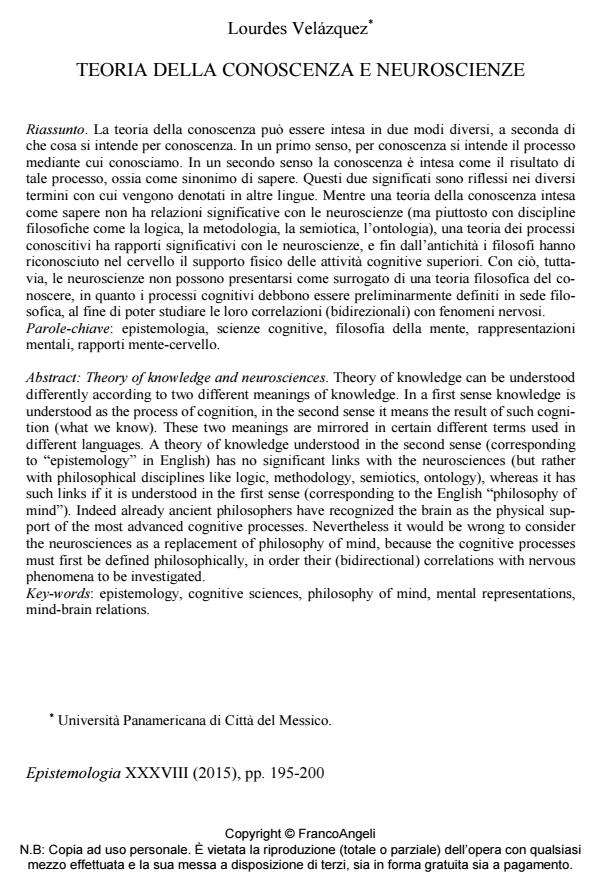Theory of knowledge and neurosciences
Journal title EPISTEMOLOGIA
Author/s Velàzquez Lourdes
Publishing Year 2016 Issue 2015/2
Language Italian Pages 6 P. 195-200 File size 114 KB
DOI 10.3280/EPIS2015-002002
DOI is like a bar code for intellectual property: to have more infomation
click here
Below, you can see the article first page
If you want to buy this article in PDF format, you can do it, following the instructions to buy download credits

FrancoAngeli is member of Publishers International Linking Association, Inc (PILA), a not-for-profit association which run the CrossRef service enabling links to and from online scholarly content.
Theory of knowledge can be understood differently according to two different meanings of knowledge. In a first sense knowledge is understood as the process of cognition, in the second sense it means the result of such cognition (what we know). These two meanings are mirrored in certain different terms used in different languages. A theory of knowledge understood in the second sense (corresponding to "epistemology" in English) has no significant links with the neurosciences (but rather with philosophical disciplines like logic, methodology, semiotics, ontology), whereas it has such links if it is understood in the first sense (corresponding to the English""philosophy of mind"). Indeed already ancient philosophers have recognized the brain as the physical support of the most advanced cognitive processes. Nevertheless it would be wrong to consider the neurosciences as a replacement of philosophy of mind, because the cognitive processes must first be defined philosophically, in order their (bidirectional) correlations with nervous phenomena to be investigated.
Keywords: Epistemology, cognitive sciences, philosophy of mind, mental representations, mind-brain relations.
Velàzquez Lourdes, Teoria della conoscenza e neuroscienze in "EPISTEMOLOGIA" 2/2015, pp 195-200, DOI: 10.3280/EPIS2015-002002